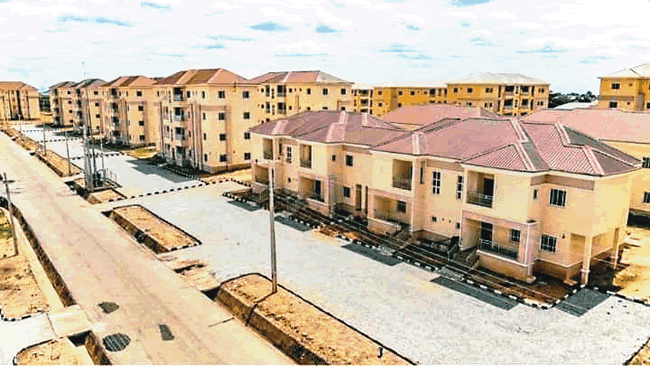Property auctions have become a popular method of real estate transactions in many countries worldwide, providing a unique avenue for both buyers and sellers.
In Nigeria, a country grappling with an 18 million housing deficit, property auctions could be the solution to unlocking affordable housing and driving market growth.
Auctions offer a transparent and competitive platform for property sales, attracting buyers who are ready with cash and providing sellers with quick sales. For many buyers, particularly those with limited budgets, auctions present an opportunity to access properties often priced below the market value. Additionally, auctions offer a faster way to sell properties that might otherwise be difficult to move using traditional methods.

The potential for property auctions to address Nigeria’s housing challenges lies in their ability to increase market liquidity, formalize the real estate sector, and provide access to properties in a more transparent environment. While Nigeria traditionally relies on open market methods for real estate transactions, property auctions have gained popularity in other parts of the world, such as South Africa, where auction houses have become established in the sale of residential, commercial, and industrial properties. South Africa’s developed real estate market is often cited as a successful model that Nigeria can learn from.
The African property auction market has shown rapid growth, particularly in countries like South Africa, Kenya, and Ghana. In South Africa alone, property auctions reached an estimated market size of $1.5 billion in 2022, with annual transactions exceeding 1,000. This success is attributed to factors like market transparency, quick transactions, and an organized process. For Nigeria, a country with a fast-growing population and increasing urbanization, the adoption of property auctions could serve as a crucial tool in addressing its massive housing deficit.
Beyond offering a platform for buying and selling properties, auctions also present an opportunity to streamline Nigeria’s informal real estate market. By establishing clearer regulations and reducing reliance on traditional negotiation-based sales, property auctions could help improve transparency, reduce market manipulation, and ensure fairer pricing.
However, for property auctions to truly thrive in Nigeria, several challenges need to be overcome. A lack of awareness and understanding about auctions, limited access to finance, and cultural preferences for traditional real estate sales can hinder adoption. To address these issues, it is crucial to establish a robust regulatory framework, educate the public about the benefits of auctions, and provide financing options that cater to buyers’ needs.
The Nigerian government, private sector players, and auction houses must work together to establish the necessary infrastructure and regulatory structures. The government should take on the role of regulating auctions, ensuring transparency and protecting the interests of both buyers and sellers. Meanwhile, private sector players, including auction houses and financial institutions, can help by offering specialized financing options and building trust with the public.
Ultimately, property auctions offer a viable solution to Nigeria’s housing deficit by providing a faster, more transparent, and accessible way for people to own homes. By fostering competition, improving access to finance, and creating a more liquid market, property auctions could play a pivotal role in transforming Nigeria’s real estate sector and addressing its affordable housing challenges.



